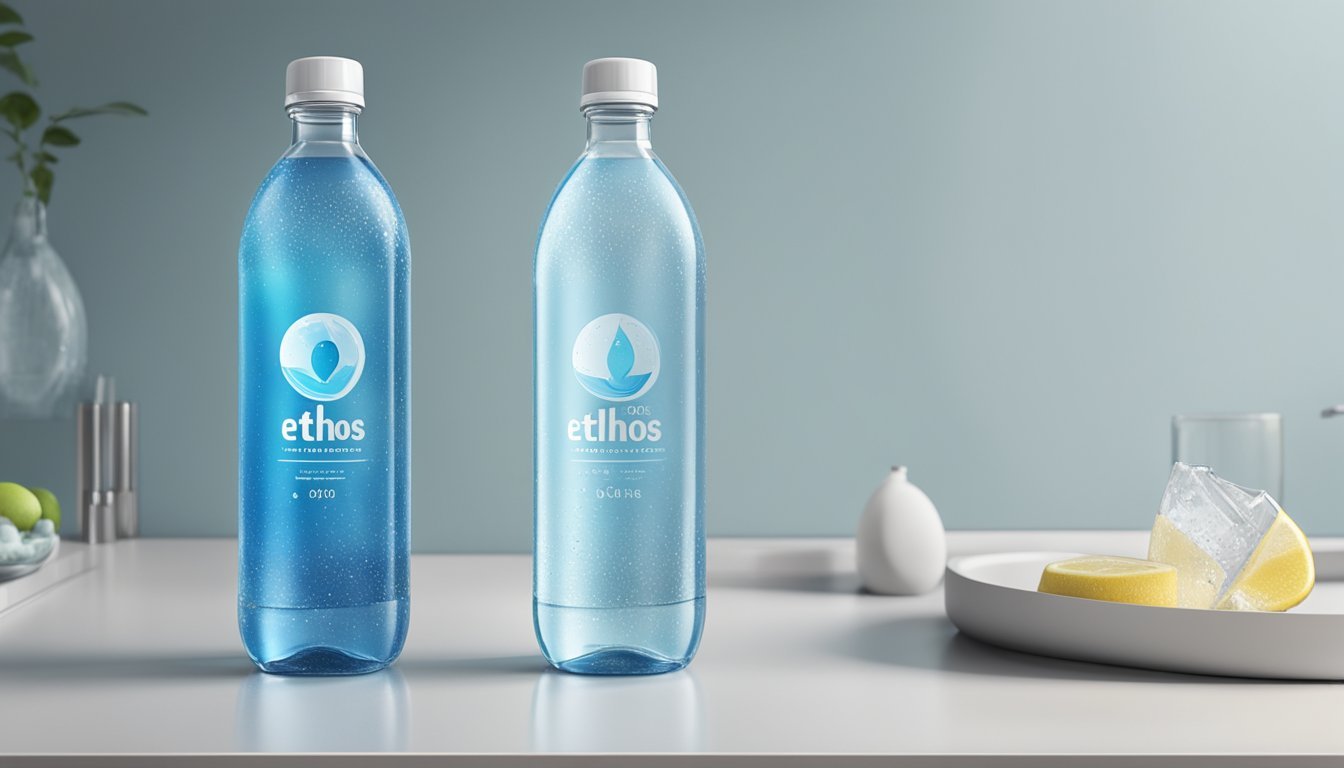Ethos vs. Just Water
An Unbiased Comparison of Bottled Water Brands
In the realm of bottled water, Ethos Water and Just Water have emerged as prominent brands, both boasting unique selling points and social missions. Ethos Water, a subsidiary of Starbucks, prides itself on its commitment to social responsibility, allocating a portion of its profits to support water, sanitation, and hygiene education programs in water-stressed countries. Born from an idea to provide clean water and stimulate social change, Ethos aims to address global water issues while offering consumers a quality product.
Just Water takes an environmentally conscious approach, emphasizing its use of plant-based packaging and sustainable sourcing practices. Founded by Will and Jaden Smith, Just Water's ethos is built around reducing plastic waste and carbon emissions. The brand sources its water from Glens Falls, New York, where it has a unique partnership with the city—paying six times the municipal rate for the water it uses. This premium helps to maintain the local infrastructure, illustrating Just Water's dedication to community impact.
Consumers today are increasingly looking for products that not only serve their needs but also contribute positively to the world. Ethos and Just Water cater to this demand, yet their respective approaches differ. While Ethos focuses on social contributions, Just Water is centered around environmental sustainability. This distinction shapes the core values of each brand and plays a significant role in the preferences of their customers.
Background and Overview of Bottled Water Brands
In the realm of bottled water brands, Ethos Water and Just Water stand out for their distinct profiles and approaches to sustainability and social responsibility. This section delves into the specifics of each, comparing their attributes and how they fit into the broader market and environmental context.
Ethos Water: Brand Profile
Ethos Water, a subsidiary of Starbucks, was founded in 2001 and acquired by Starbucks in 2005. It presents itself not just as a provider of bottled water but as a brand with a mission—aiming to bring safe, clean drinking water to those in need. For every bottle sold, a contribution is made to support water, sanitation, and hygiene education programs in water-stressed countries.
Just Water: Brand Profile
Just Water emerges as an environmentally conscious brand, offering a product packaged in a paper-based carton sourced from responsibly managed forests. The company, co-founded by actor Jaden Smith, emphasizes sustainability, stating that its carton is composed of 82% renewable materials. Just Water's source is a spring in upstate New York, and its operations focus on community impact and environmental stewardship.
Comparing Ethos and Just Water
Comparing Ethos and Just Water, both brands leverage their commitment to social and environmental causes as a unique selling point. Ethos engages in charitable initiatives, and Just Water emphasizes its eco-friendly packaging and sustainable sourcing practices.
Market Position and Consumer Demand
Both brands have secured a niche in the bottled water market by responding to a growing consumer demand for products that offer not only hydration but also ethical and environmental considerations. This trend has influenced their market positions and is reflective of a broader shift towards sustainability in consumer choices.
Regulatory Standards and Compliance
Bottled water, as a food product, is subject to regulation by the FDA under the Safe Drinking Water Act and FDA regulations. Both Ethos Water and Just Water must comply with stringent safety and quality standards, ensuring that their products meet the safety thresholds for chemicals, lead, contaminants, and other potential hazards.
Environmental Impact of Bottled Water
The environmental impact of bottled water can be substantial, from resource extraction to plastic pollution. Ethos Water and Just Water have attempted to mitigate their impacts through various initiatives, including charitable contributions and innovative packaging solutions that reduce the reliance on plastic bottles.
Health and Safety Concerns
The safety of bottled water is ensured through adherence to EPA and FDA guidelines. Brands like Ethos and Just Water must guard against PFAS chemicals, cryptosporidium, and BPA to protect consumers' health and maintain trust in the purity of their water products.
Water Source and Natural Purity
Ethos Water sources its product from privately accessed sources before filtration, while Just Water relies on spring water from a single community source. Both brands tout their source water's natural purity as a key selling point.
Taste and Quality Perception
Perceptions of taste and quality greatly influence consumer preferences. Ethos and Just Water are positioned alongside other premium brands such as Evian, Fiji, and Smartwater, where taste tests and the presence of mineral content and electrolytes can determine consumer loyalty.
Filtration and Purification Processes
Effective filtration and purification processes are critical to bottled water quality. Methods like reverse osmosis and the use of carbon filters are employed by various brands to ensure that their products meet or exceed regulatory standards for water quality.
Packaging and Convenience
The convenience of bottled water is often a key factor for consumers. Ethos Water’s and Just Water’s packaging decisions reflect a balance between consumer convenience, cost, and environmental considerations, with Just Water notably using boxed water packaging to lessen its environmental footprint.
Additional Topics in Bottled Water Choices
Beyond the core attributes, consumers also consider factors like cost, energy use in production, brand image, and availability when selecting bottled water. Both iconic and emerging brands compete on these additional fronts, influencing the overall bottled water experience.
Conclusion
Ethos Water and Just Water each offer a unique proposition in the bottled water market, with commitments to providing quality products while addressing environmental and social challenges. Their differing approaches and initiatives reflect a dynamic industry that is increasingly aligned with sustainability and ethical consumption.



